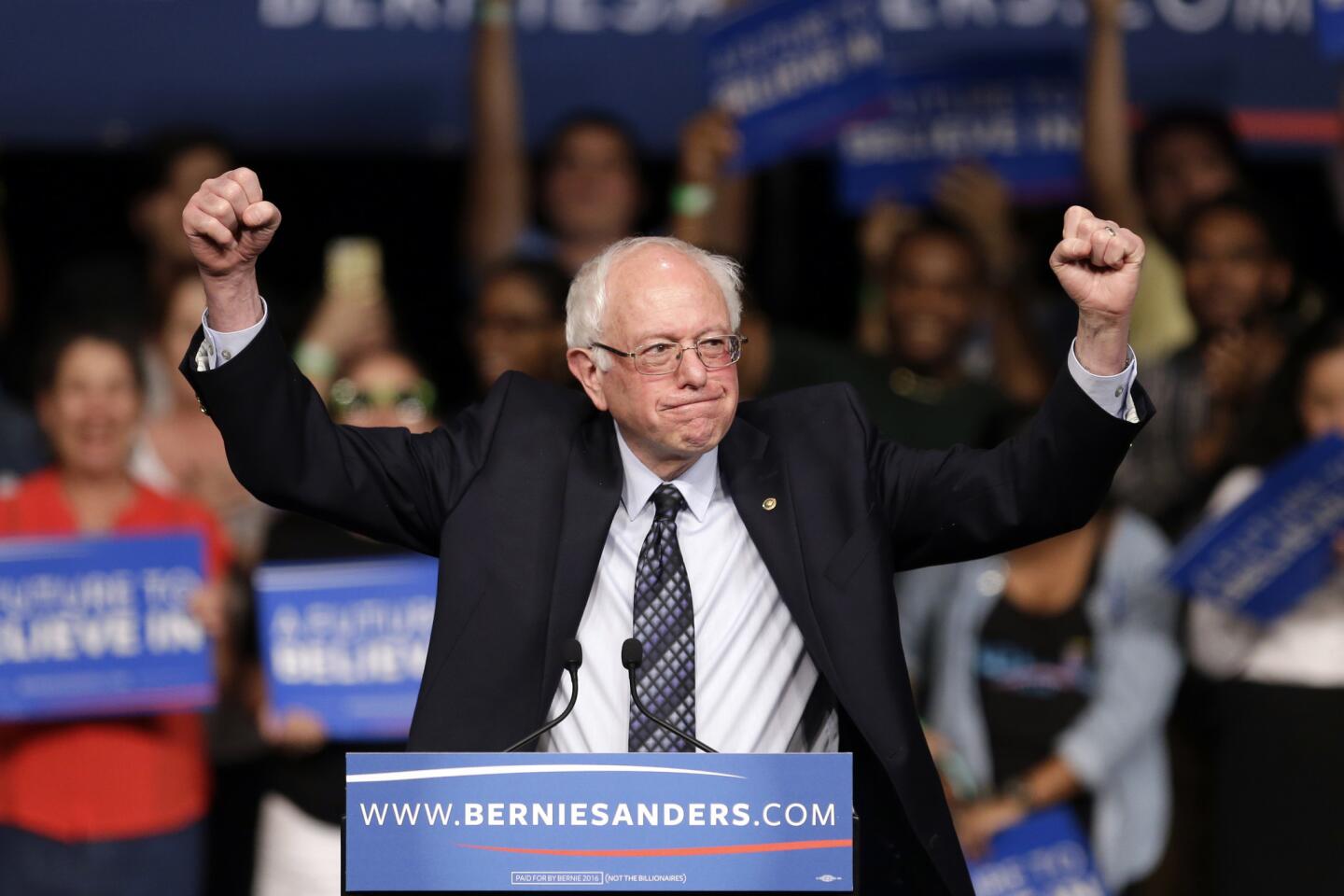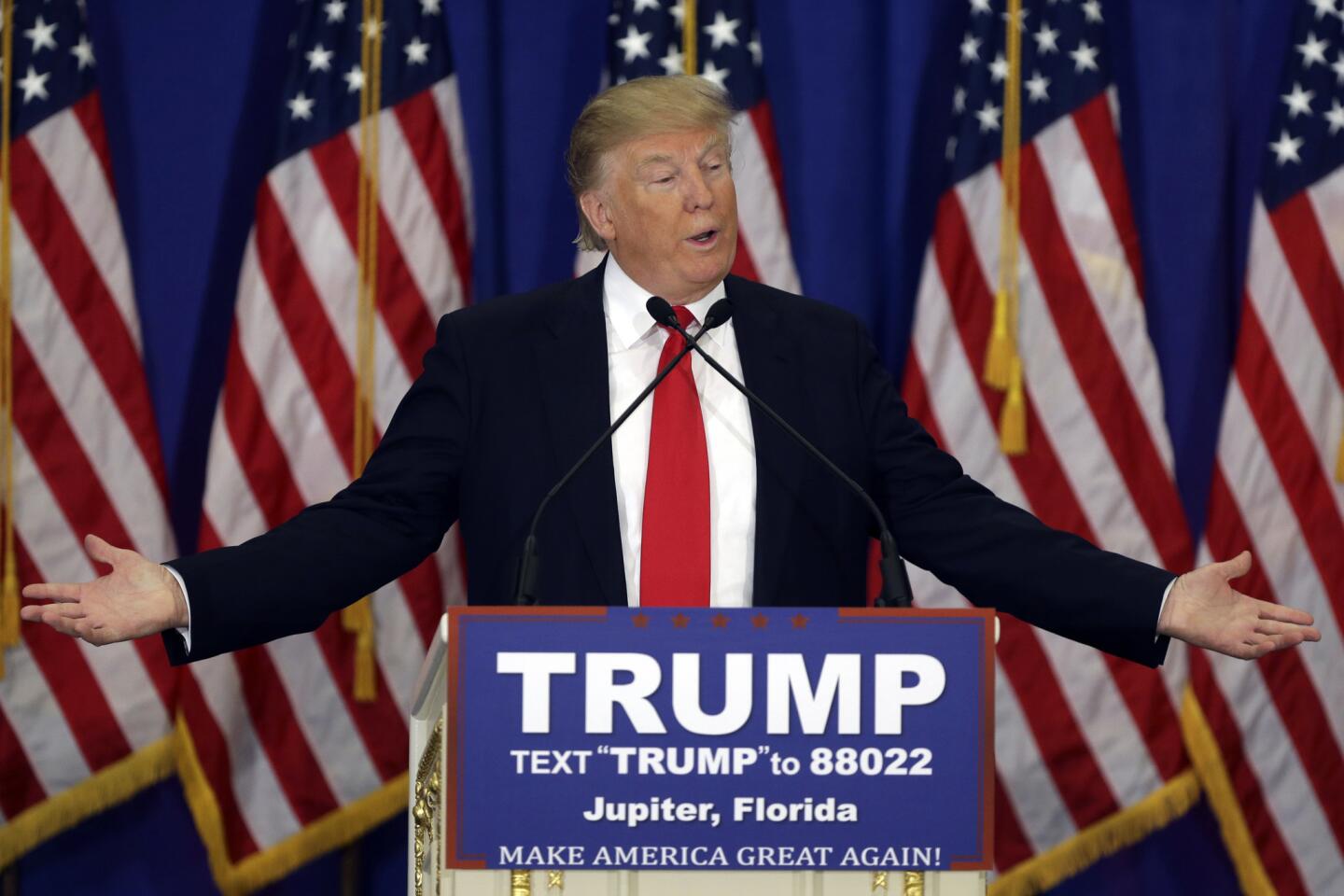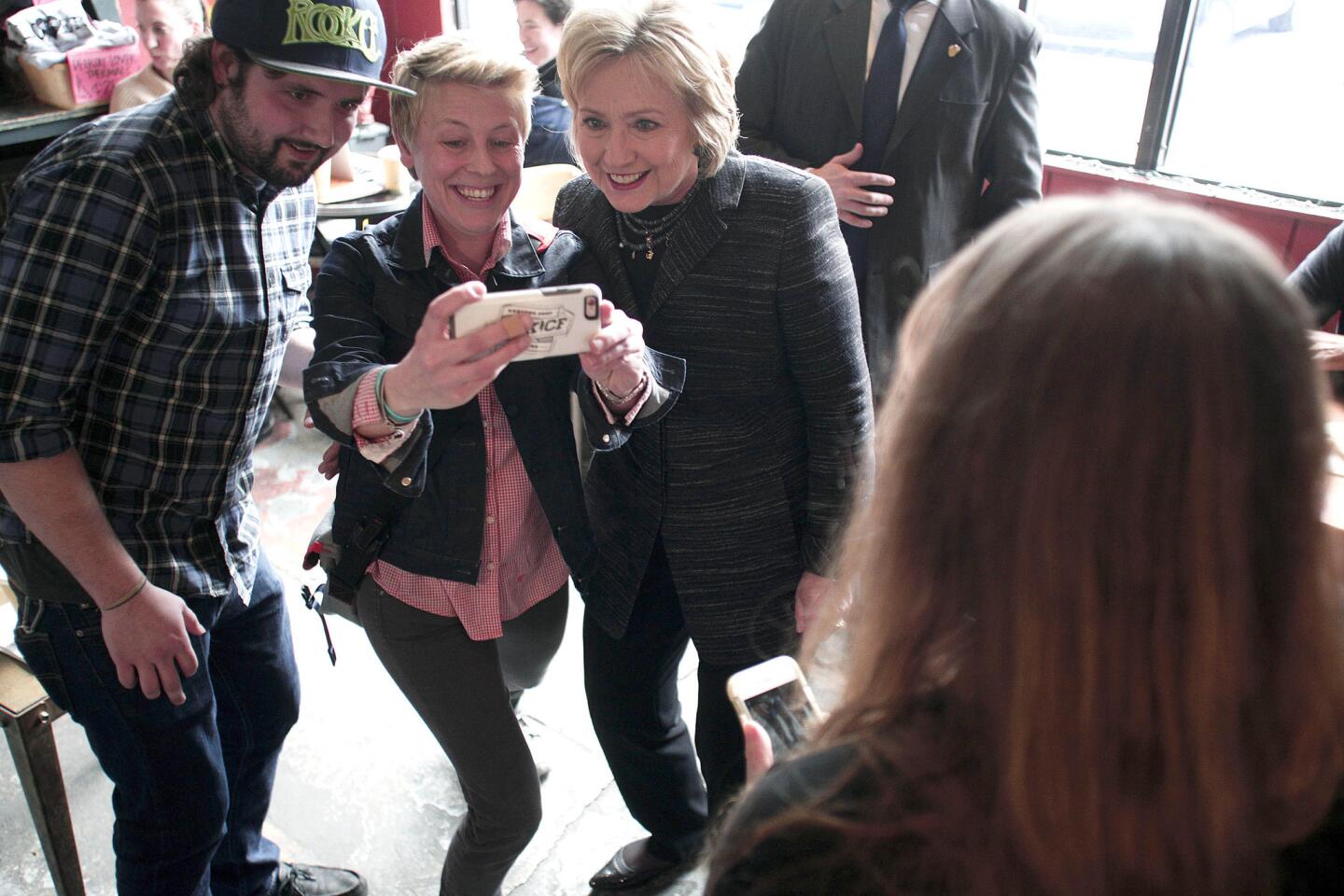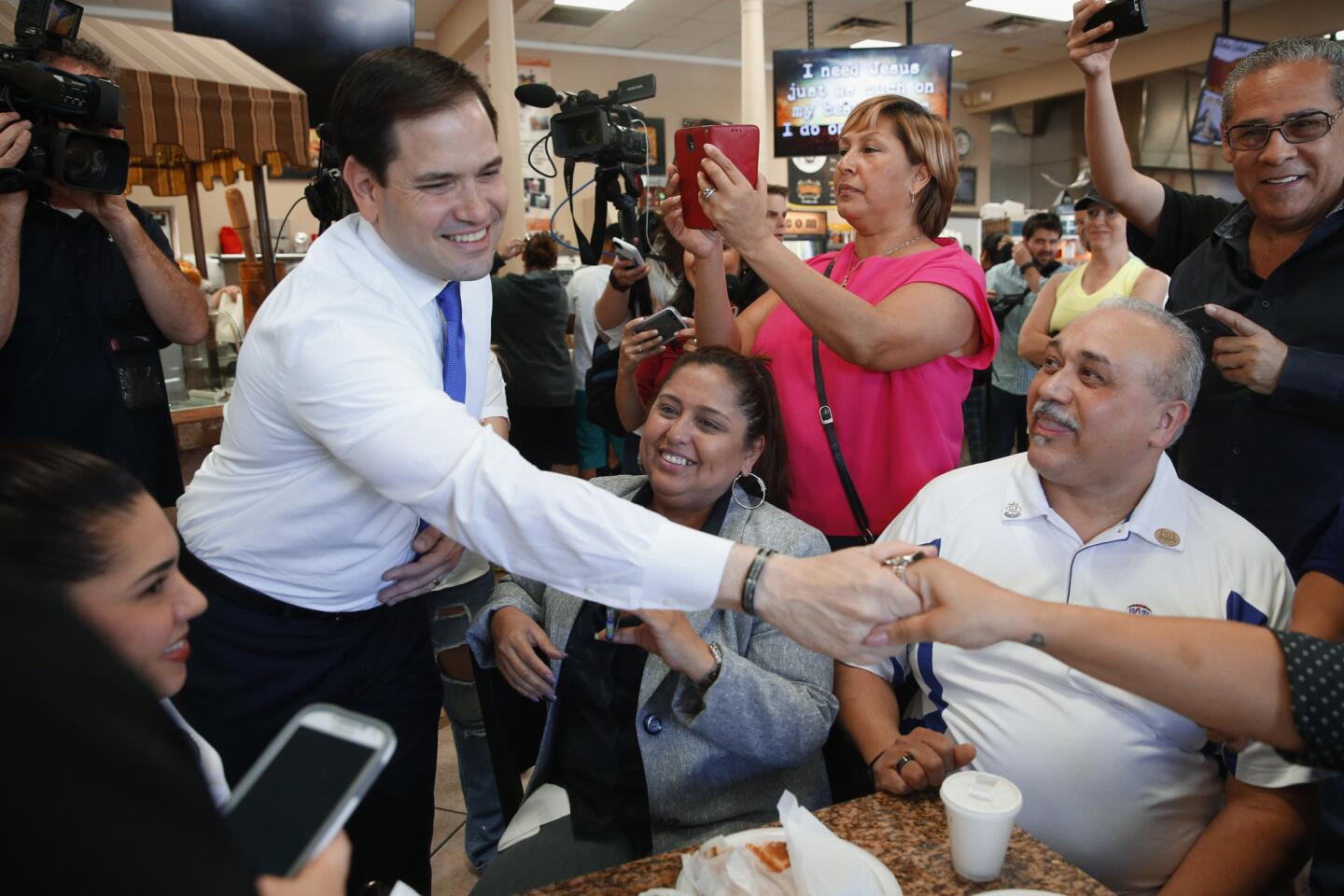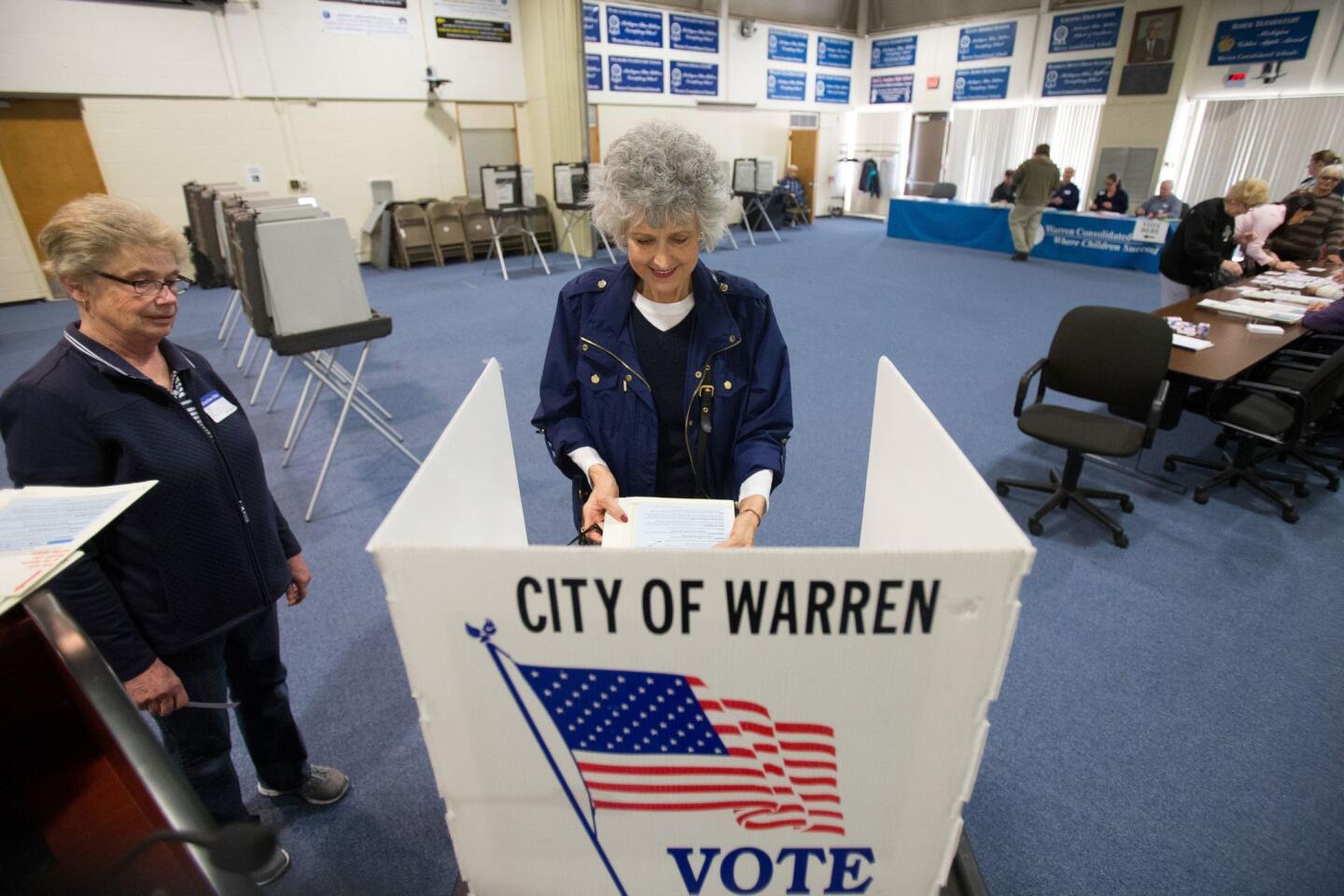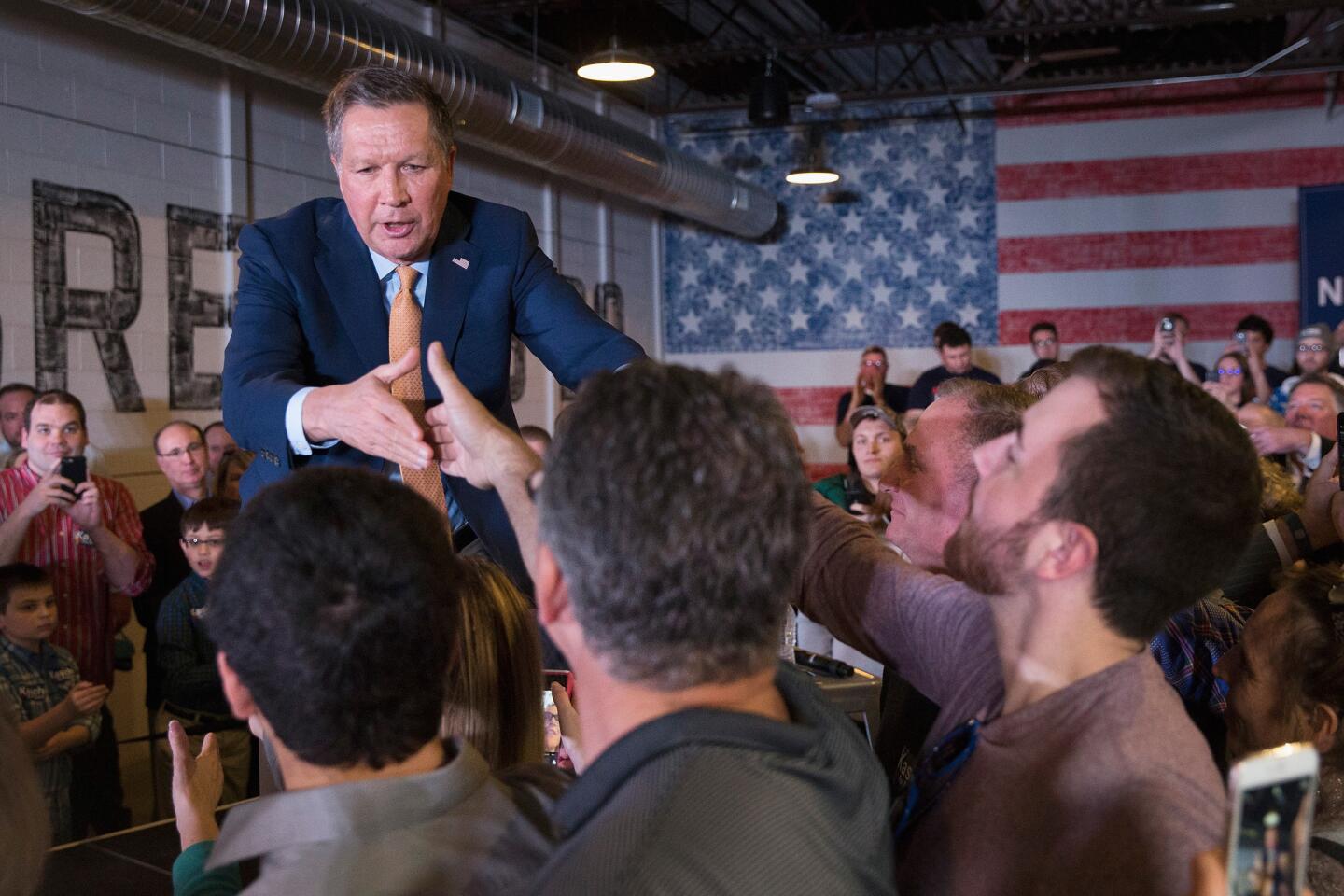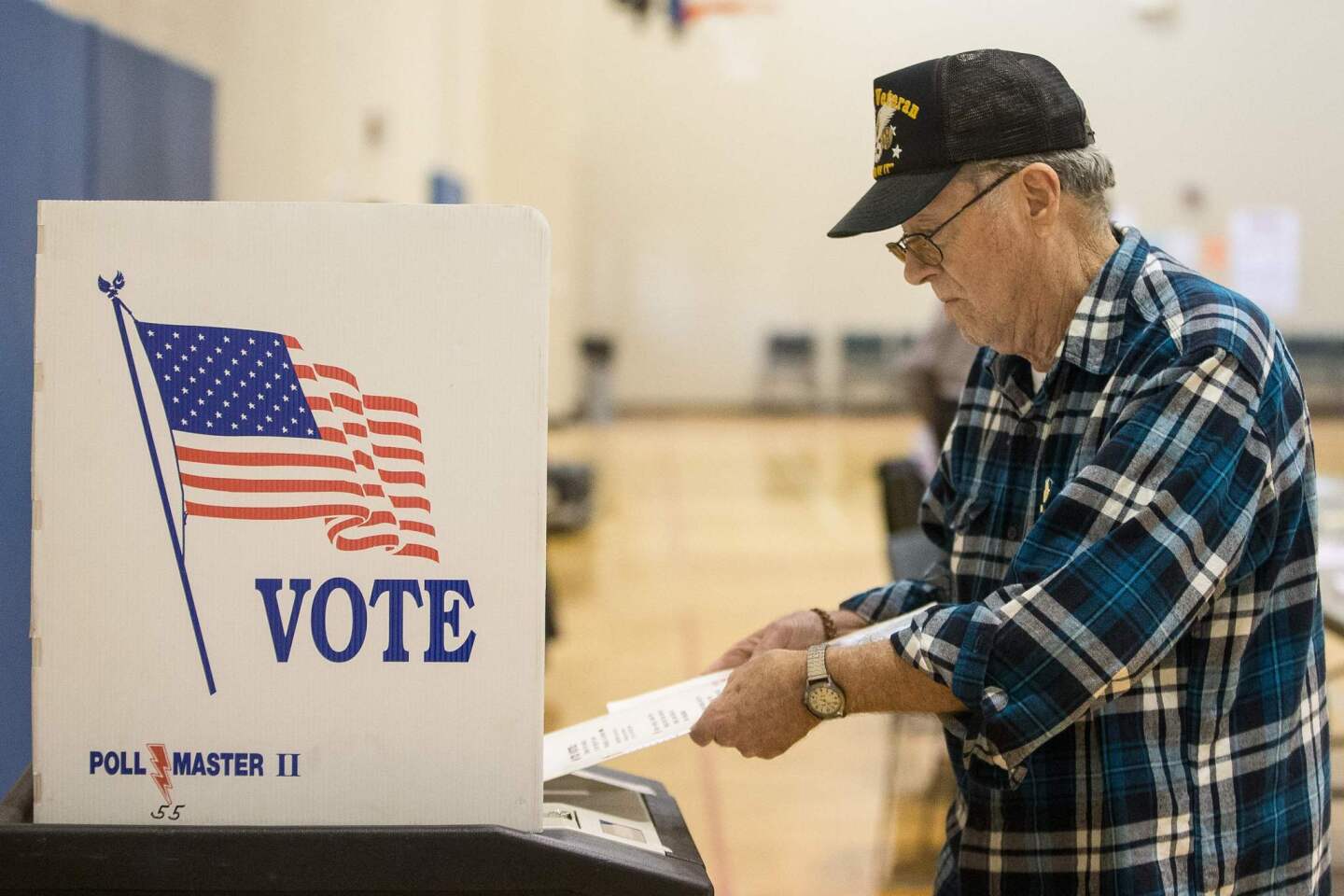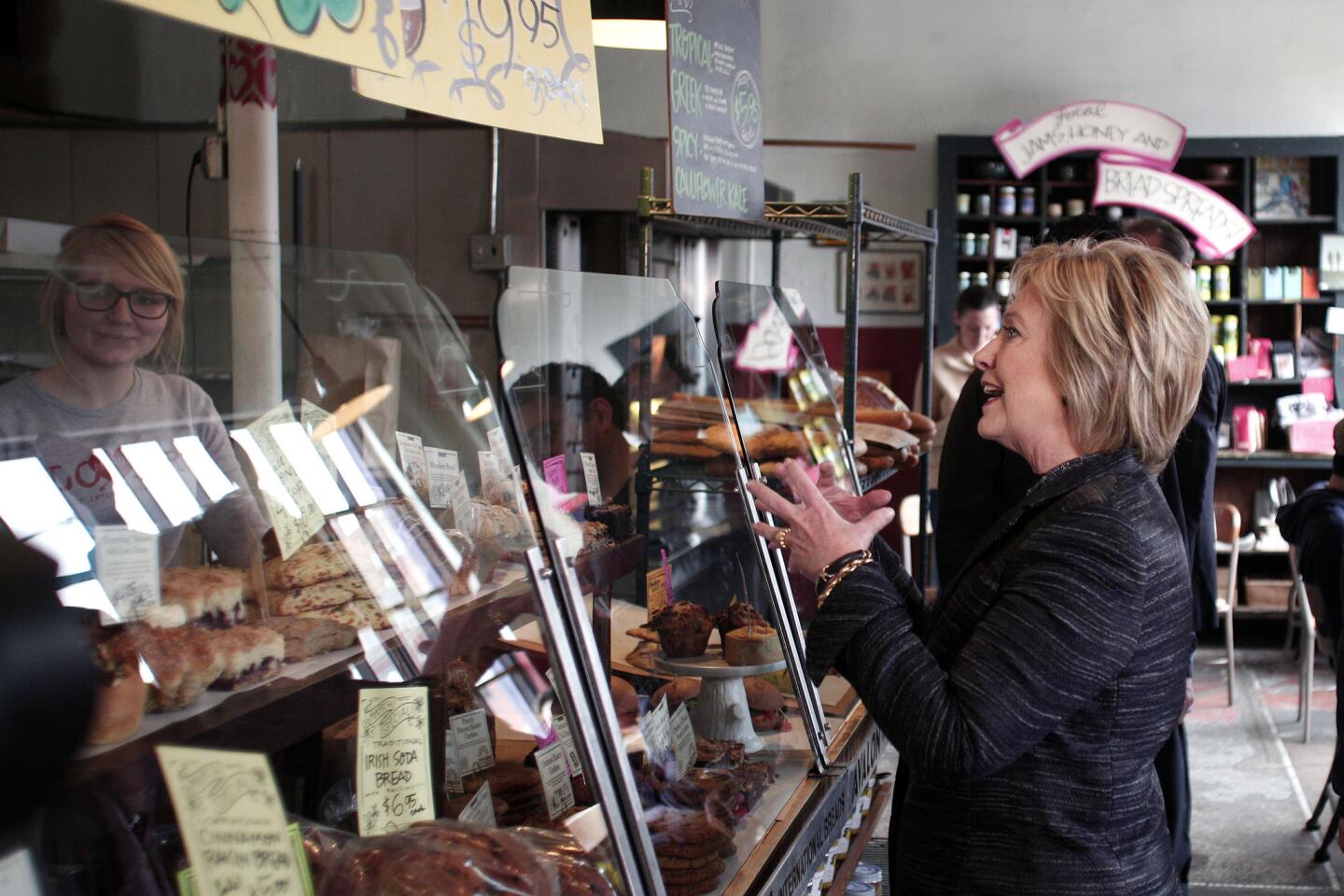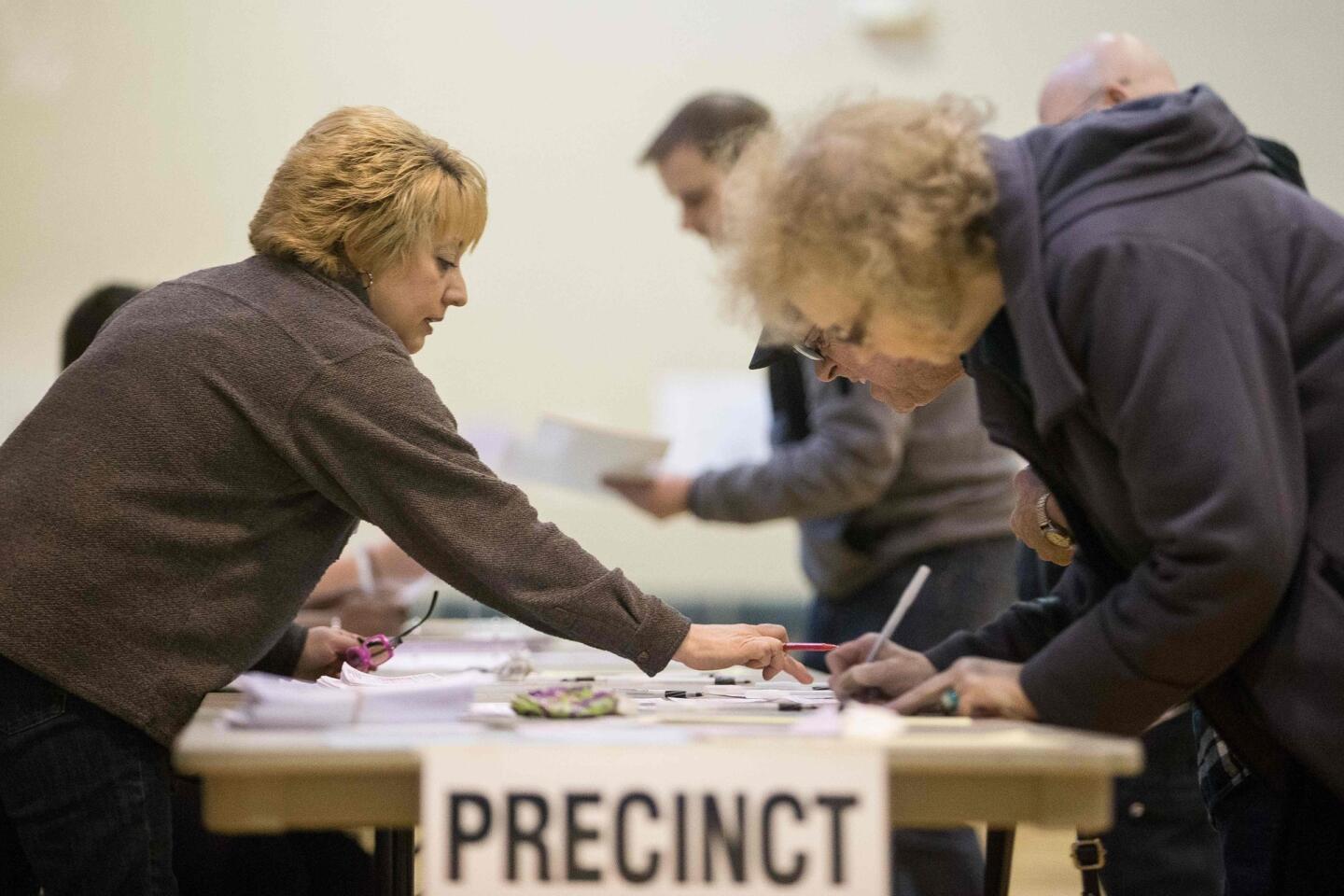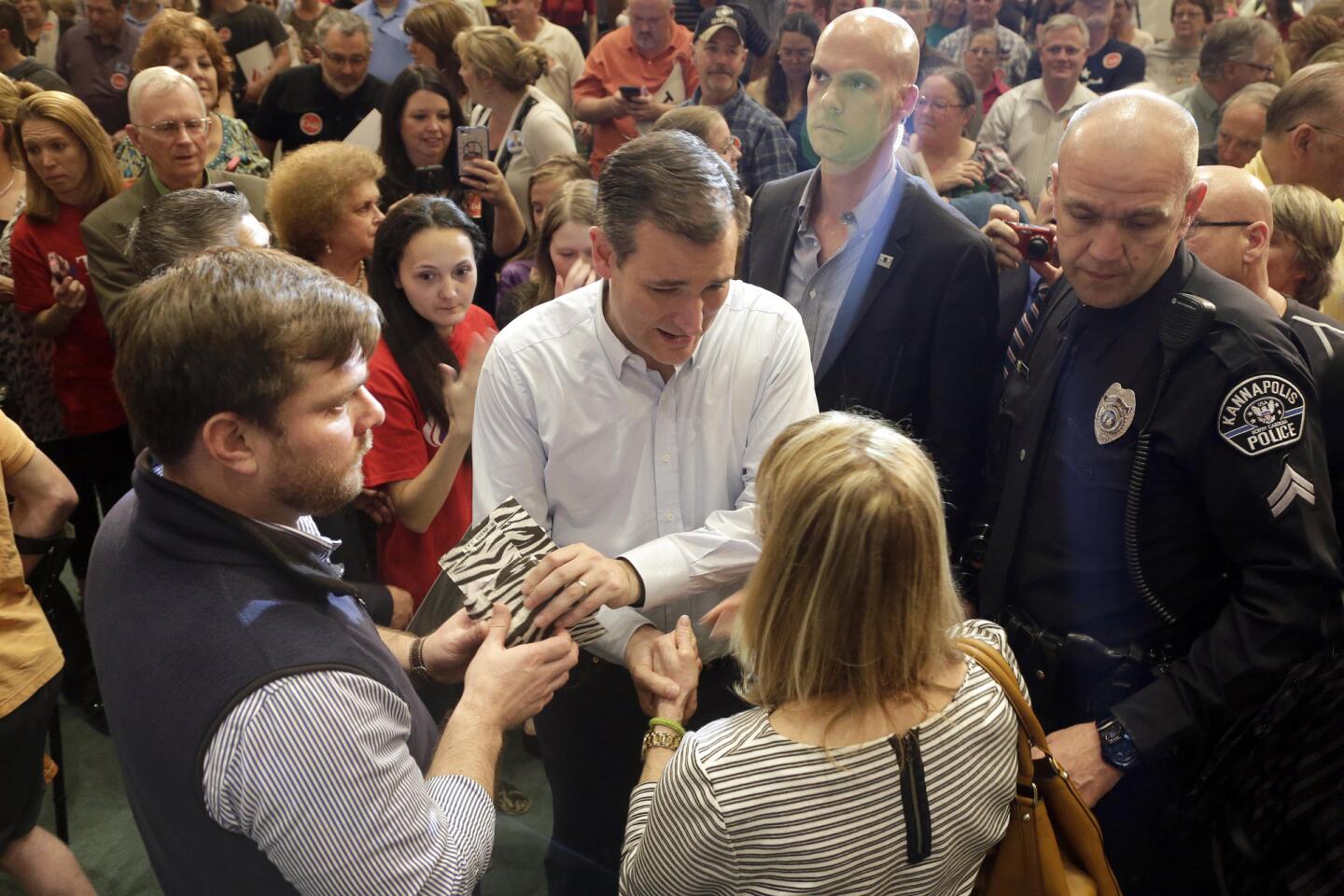Trump rolls on, winning 3 of 4 states; Cruz takes Idaho
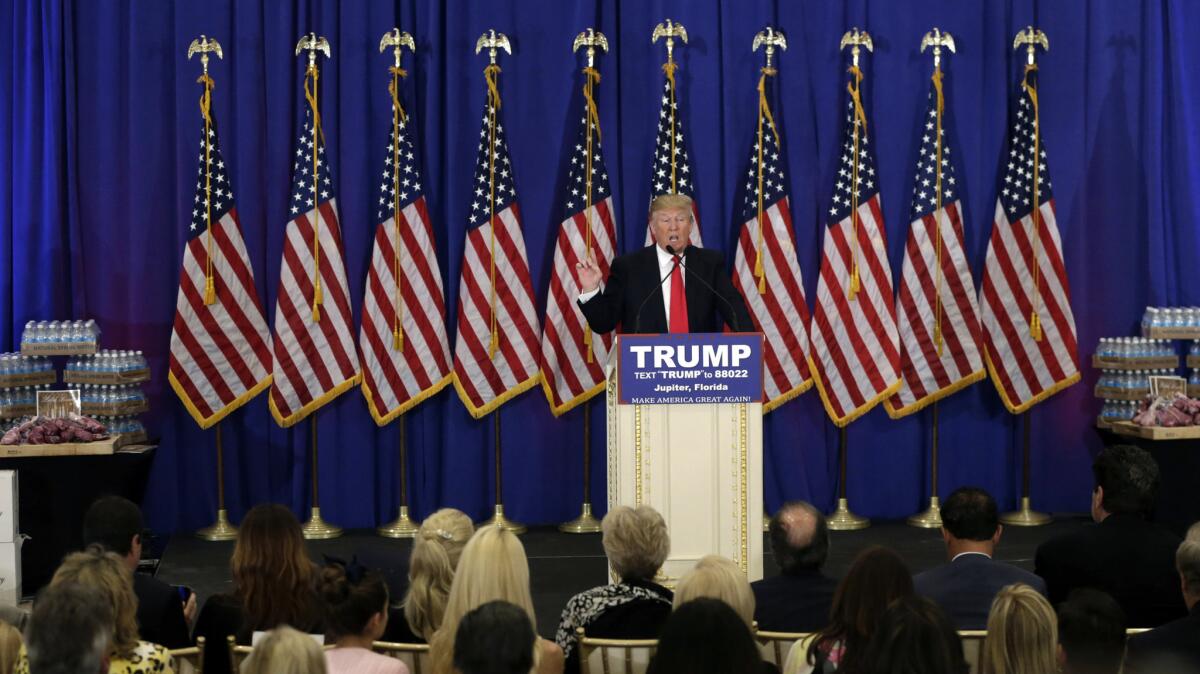
Donald Trump speaks after his primary victories.
- Share via
Another Tuesday, another series of victories and the prospect of Donald J. Trump as the Republican presidential nominee grows ever more likely.
By carrying Mississippi in the Deep South and Michigan in the upper Midwest, Trump has already demonstrated a broader appeal than either of the last two GOP standard-bearers — who both happen to be among his major detractors.
Not the withering criticism by Mitt Romney or John McCain, a widely disparaged debate performance nor a growing bombardment of negative ads were enough to slow a steam-rolling Trump, as he noted at a gloating news conference Tuesday night.
“I don’t think I’ve ever had so many horrible, horrible things said about me in one week … but that’s OK,” he told reporters at his Trump National Golf Club in Jupiter, Fla. “It shows you how brilliant the public is, because they knew they were lies.”
Later, he added sarcastically, “I want to thank the special interests and the lobbyists, because they obviously did something to drive these numbers.”
The spending is likely to continue unabated, as the results offered at least a sliver of hope to the stop-Trump forces.
Ohio Gov. John Kasich and Texas Sen. Ted Cruz were in a close race for second in Michigan; Kasich hoped his respectable showing would give him a lift ahead of a must-win primary next Tuesday in his home state.
Cruz finished second in Mississippi, dissipating some of the momentum he picked up with two wins over the weekend, but he easily won the Idaho primary.
The last remaining challenger, Florida Sen. Marco Rubio, placed a distant fourth in Mississippi and Michigan, third in Idaho, and was headed to a third- or fourth-place finish in Hawaii. He faces elimination next week if he fails to carry his home state. Polls there give Trump, a part-time resident, a big lead.
Tuesday’s balloting saw nothing like the coast-to-coast contests of last week’s Super Tuesday, when close to 600 delegates — just about half the number needed for nomination — were awarded in 11 states. This time, a mere 150 were up for grabs in four contests.
In addition to his primary victories, Trump also won the precinct caucuses in Hawaii.
Despite Tuesday’s smaller stakes, however, the balloting was widely seen as a test of Trump and the gathering forces working to stop his unlikely political advance.
The voting followed a particularly rough week for the wealthy businessman and first-time candidate, who has proved largely impervious to the kinds of political forces that affect most other office-seekers.
Once more he seemed to come through unscathed, though there were possible warning signs flashing amid his victories Tuesday.
Exit poll interviews showed Trump finishing third in Michigan — behind Kasich and Cruz — among late-deciding voters and second to Cruz among Mississippians who made up their minds within the last week.
The pattern, which also turned up in earlier states, suggests Trump may not wear as well over time.
Kasich has yet to win a state but was counting on the results in Michigan, which has many of the economic and social characteristics of Ohio, to offer a blueprint for victory next Tuesday.
That, he hopes, will stamp him as the establishment favorite against Trump; while it may be impossible to overtake him in the delegate count, the plan is to wrestle the nomination away at a contested convention, which, as it happens, will be held in Cleveland this summer.
“We’re all familiar with March Madness,” Kasich said, alluding to the college basketball tournament at an exuberant election night party in his hometown of Columbus. “And now, the home-court advantage is coming North, and next week we’re going to win the state of Ohio.”
Two vastly different electorates turned out for Tuesday’s main contests.
In Mississippi, more than three-quarters of voters described themselves as evangelical Christians, and many said they were strongly conservative, according to exit poll interviews. In Michigan, by contrast, the electorate was more secular and less Republican, with a significant number of independents voting in the GOP contest.
In winning both, Trump underscored the breadth of his support.
Most notably, he topped Cruz among Mississippi’s evangelicals, despite his ribald past. It repeats a performance seen across the South, where Trump has prevailed in a way that neither Romney nor McCain managed in winning the GOP nomination in 2012 and 2008, respectively.
One commonality Tuesday was unhappiness with the political status quo, a running theme throughout this ornery election season.
Nine in 10 voters in both Mississippi and Michigan said they were angry at government; 6 in 10 Southerners and just over half the voters in Michigan said they would like the next president to be someone from “outside the political establishment.” As he has throughout the campaign, Trump handily won that protest vote.
Michigan was the day’s big prize, not only because it offered the largest number of delegates, 59, but because it presented the first test of the candidates’ appeal in the industrial Midwest, a traditional fall battleground. If nominated, Trump hopes his protectionist talk could win over blue-collar workers skeptical of foreign trade deals and put several traditionally Democratic-leaning states into play.
Trump’s victories amounted to a bounce-back of sorts. He won primaries Saturday in Kentucky and Louisiana, but the contests were much closer than expected, perhaps because the voting was limited to registered Republicans.
Trump had been buoyed throughout the primary season by the crossover support of Democrats and independents allowed to vote in GOP caucuses and primaries; Mississippi and Michigan both held open primaries.
Cruz posted two victories over the weekend, in Kansas and Maine, elevating his effort to emerge as Trump’s main challenger. Tuesday’s results in Mississippi in particular marked a setback, though Idaho offered some consolation.
A candidate needs 1,237 delegates to clinch the GOP nomination ahead of the party convention in July. After winning 12 of the first 20 contests, Trump started out Tuesday with 382 delegates, a number he padded with his victories. Cruz had 300, Rubio barely half that number, and Kasich fewer than 40.
The next big test will come Tuesday — perhaps the decisive day of the GOP contest — when 358 delegates will be at stake in five states: Illinois, Missouri, Ohio, North Carolina and Florida.
The most important contests will be the winner-take-all primaries in Florida and Ohio.
Victories by Rubio or Kasich could extend the Republican race for at least several more weeks and keep the anti-Trump movement alive. Failing that, their hopes of winning the White House will come to an end and, for all intents, Trump could lock up the nomination.
Times staff writers Michael Finnegan and Kurtis Lee contributed to this report.
Follow @markzbarabak for national and California politics
MORE ON CAMPAIGN 2016
Who’s winning the race for delegates in both parties?
Super PAC consultant who spent $100 million on Jeb Bush is unapologetic
Five things to watch for in today’s primaries
More to Read
Get the L.A. Times Politics newsletter
Deeply reported insights into legislation, politics and policy from Sacramento, Washington and beyond. In your inbox three times per week.
You may occasionally receive promotional content from the Los Angeles Times.

